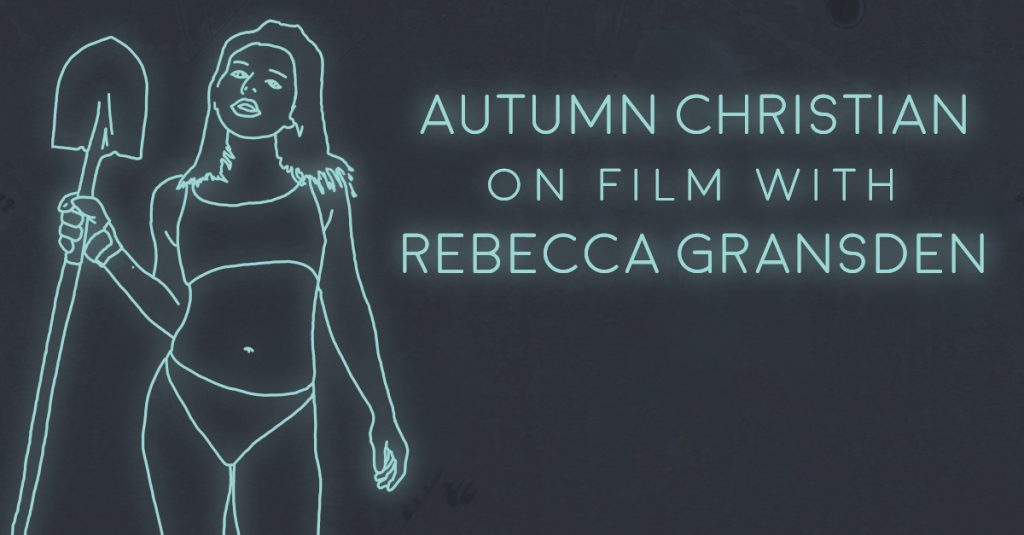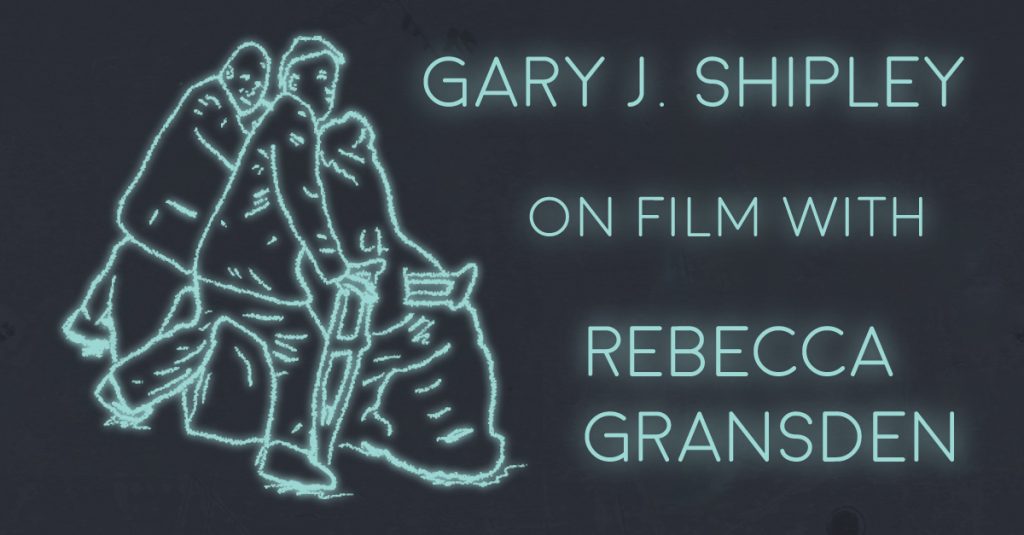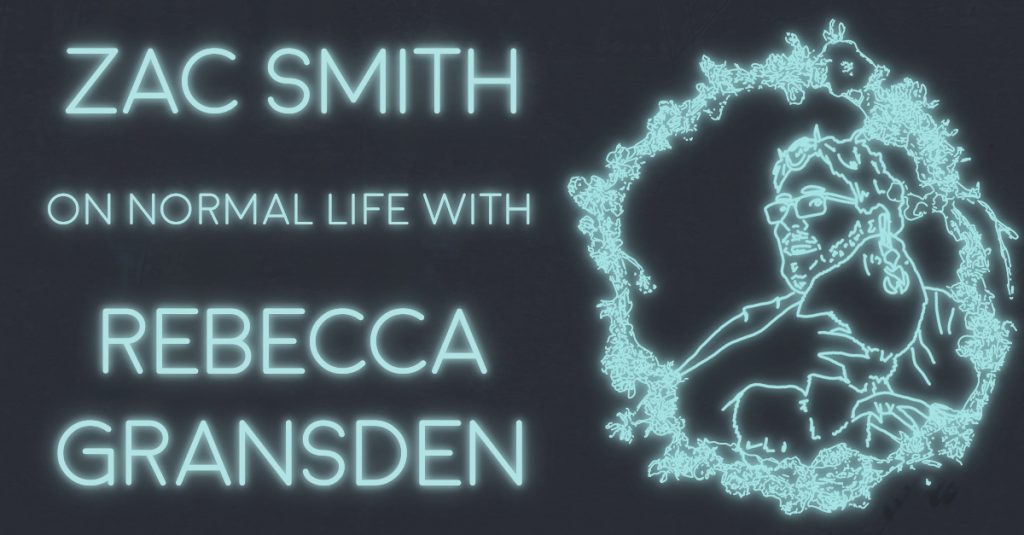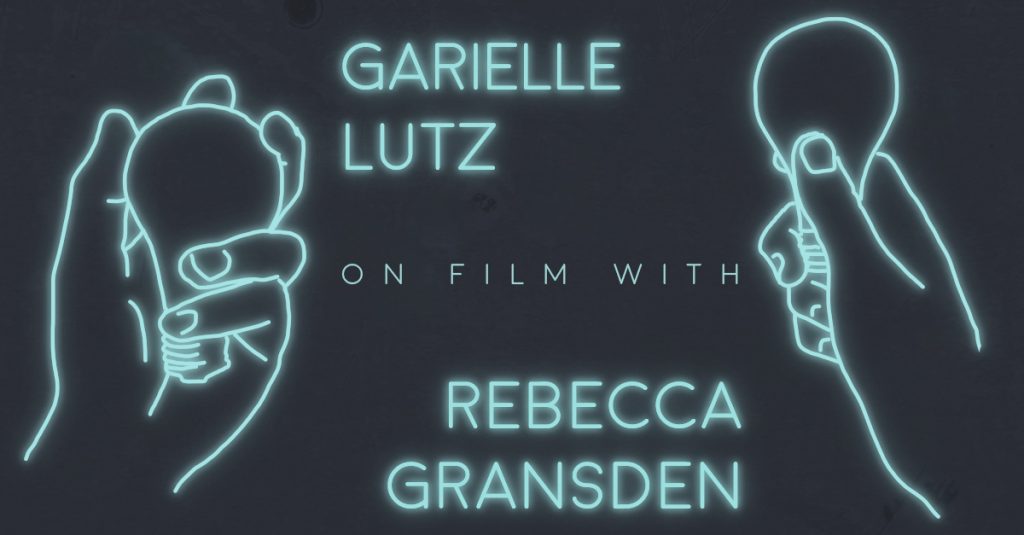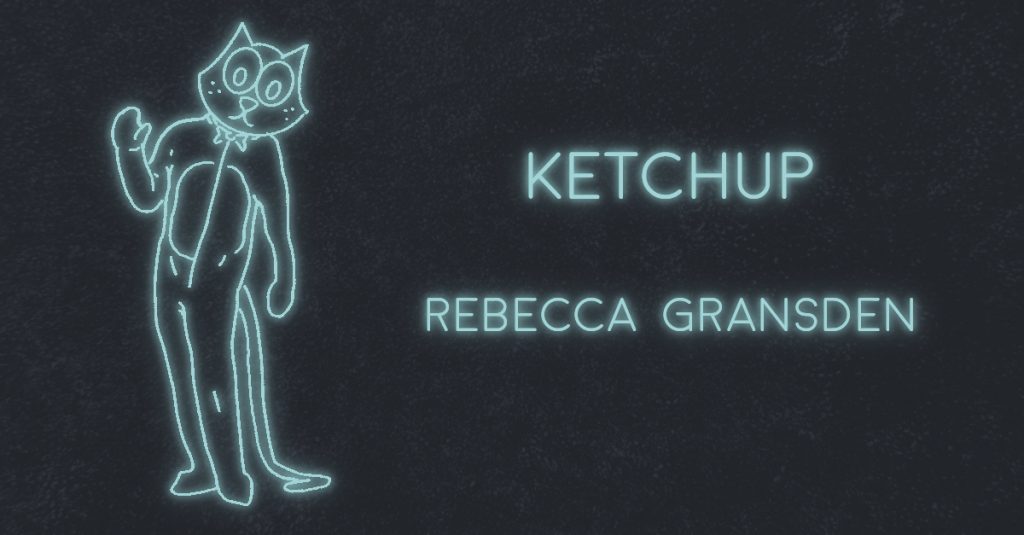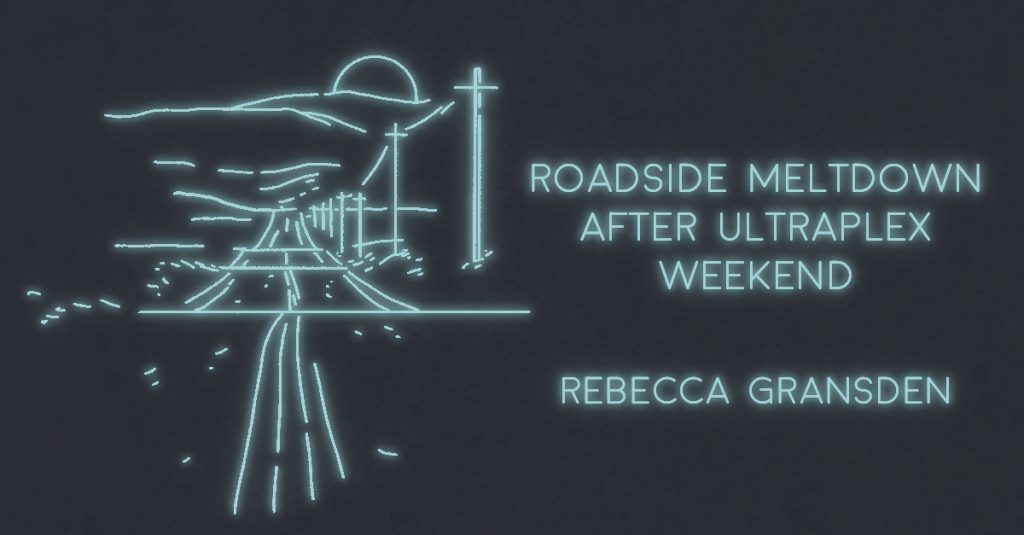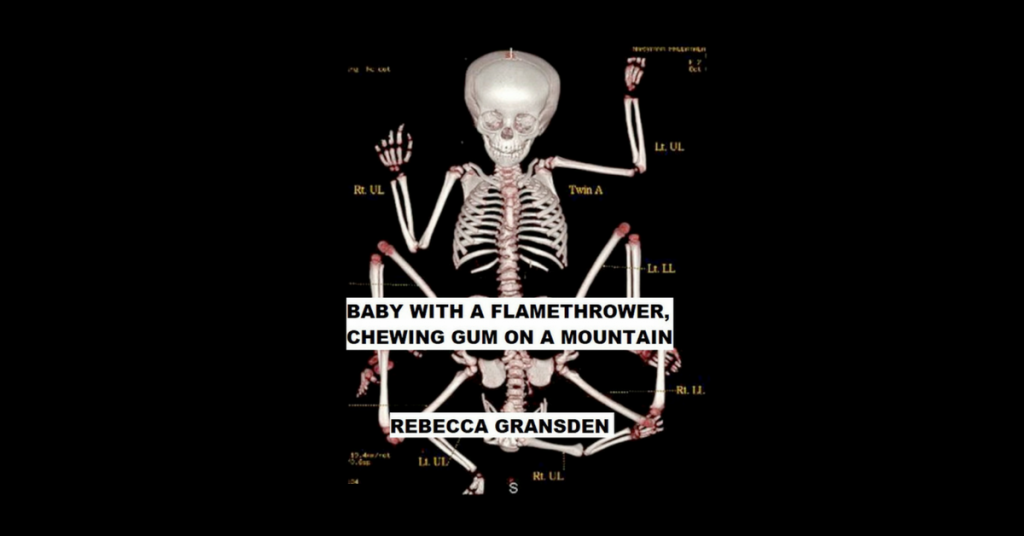The way we talk about film, how we digest it, is worth a thought. We “capture” images, we “take” pictures. For those oldest reels, where life skitters in shades of black and white, it’s tempting to view the images as a record, as a window or portal to another time. There is a truth in that. Pointing a camera at people unaware their image is being taken, in that between-time when the medium was new and its nature not widely known, has an unnerving quality. When animals are presented in these infant days of moving image the issue is somehow amplified — it’s the obliviousness that makes them more alive, and hence their long-deadness more pronounced. If — according to some physics I don’t understand — we are a way for the universe to observe itself, and the act of observation influences existence in its most fundamental state, then does turning that act of observation back onto ourselves have an equal or opposite consequence? If our eyes were designed for that purpose, do we risk contradicting our reason for being here? At the heart of the capture of any image is the tension between permanence and impermanence. Actors become icons, and we refer to the immortality of the screen, knowing that film degrades, is lost, human error deletes storage, and all those films we’ve streamed and purchased are available only as long as our provider of choice decides so. The travel in time is one taken in memory when we watch a film, if it’s good anyway: the first cinema we frequented, the old carpet in the house we grew up in, the friend who introduced us to a film much beloved, the night we couldn’t sleep because of a scene that haunted us. The bristly material of the fold-down chair as it grazes the rear of your adolescent knees, that person who sat too close, and the one that cried a little too hard. As a smaller person, legs crossed staring up at the tv with the smell of dinner threatening to take the end of the film away. Here we arrive at Garielle Lutz.
‘As a kid, I didn’t see a lot of movies, but I loved to study the movie advertisements in the Friday edition of the local paper: the ads were always awfully small, and all of them would fit onto half of a page and offered only the logos of the local movie houses, miniaturized samplings of lobby-poster graphics, the names of cast members and big-shot picture personnel squeezed into sideways-squashed lettering that was hard to read, and, most gratifying for me, the list of show times, because something seemed practically occult about those sequences: 1:10, 2:55, 4:40, 7:20, 9:15. (Movie schedules were a big influence on my interpretation of the running times of song titles listed on the backsides of record albums: I began to think that 2:38 parenthesized after a title meant that that was the time of day when I should listen to the song, but most of the times were in the range of 2:00 to 3:30, and I was almost always still at school then, or on my way home, so that would have meant not playing most of my records, and I liked my records.) The movie ads were the only thing I ever bothered with in the paper (I had no use for current events), and my favorite toy was a cheap projector (fabricated mostly of plastic) that would beam onto a wall anything I positioned in a little skirted expanse beneath the part of the device housing the bulb, and I thuswise whiled away many an evening staring at movie ads magnified into magnificence onto the barest wall of my tiny bedroom. The downtown movie houses in Allentown, Pennsylvania, the thriving, thwarting little city in which I grew up — the Rialto, the Colonial, and the Capri (all on Hamilton Street, the main drag) and the Boyd (a couple of side-street storefronts down from the city’s only skyscraper, a gothamish Art Deco uplooming at the corner of Ninth) — had been curtailedly palatial even from the start and by the time of my childhood had stopped short of offering a portal to anything englamoring. The seats were plush, sure, but the places always smelled like the shoes and socks of people who’d had to walk punishingly far to be charmed. One Sunday I was taken by the hand to see a matinee of Mary Poppins at the Colonial, but the lady at the box-office window told my parents that the showing was sold out, so we went back home, and I was relieved, because I knew I would’ve otherwise had to sit through the whole miserable thing and keep telling myself, “I should like this, what is wrong with me that I don’t like this, please let this be over and done with soon,” the same thing I always told myself while faced with the longueurs of dreamless Disney dreariments like The Sword in the Stone and Pinocchio. But there was a drive-in theater (called the Boulevard) in our working-class district, and on summer weekend nights my parents often packed me pillowedly into the car for the double features, but aside from my delight in the intermissional operettas about the hot dogs and chocolate bars on offer at the snack bar, the only movies I can remember staying awake for long enough to form much of an impression were Breakfast at Tiffany’s and Walk on the Wild Side. From the first seconds of the opening-credits sequence of Breakfast at Tiffany’s (early-morning Fifth Avenue and Fifty-seventh Street, Holly Golightly in black gloves all the way up past the elbows and nibbling a pastry (though I still hope it’s a croissant, not something sticky), I had my first dim inklings of how I wanted to grow up (as Holly) and where I wanted to live (in Manhattan [though the closest I would ever get was a one-month sublet in Cobble Hill, Brooklyn, when I was fifty-one, and from 1983 onward I would have to make do with the concrete-canyon effects achievable by walking slowly and desirously eastward on the narrow, Manhattanesque five-block stretch of William Penn Place in downtown Pittsburgh]). That swoon-inducing opening sequence was just about the only thing I took away from the movie as a seven-year-old (I’m sure I dozed off during much of what followed, and there are only snatches of the movie I care enough about to watch now, but those two minutes and twenty-seven seconds at the start were the first of the half dozen or so turning points in my life), and for days afterward I begged my parents to buy me the soundtrack album, and they gave in, and I’ve still got the thing (the running times of the songs range from 2:24 [“Hub Caps and Tail Lights”] to 3:18 [“Holly”]; dismissal time at the elementary school was 3:05). As for Walk on the Wild Side, I remembered almost nothing from it other than a dawning suspicion that adult life was to be lived in louche black-and-white and with only fitful approximations of affection ever possible from other people. I’ve never since looked at that movie again, but as a teenager I glommed on to a used copy of a 1962 paperback anthology of short fiction called Nelson Algren’s Own Book of Lonesome Monsters, and I must have found the title welcomingly, life-blightingly apt and must have recognized that the man whose name was featured in the title was the author of the novel on which Walk on the Wild Side was based, but I don’t think I read very far into the thing before giving it a toss. A year or two later (by then I was a mostly mute and ignored beanpole of a junior at Louis E. Dieruff High School), Lou Reed came out with his Velvetsy recitative “Walk on the Wild Side” and stirred up in me some inchoate, chiaroscurist memories of the movie (by now I knew it had had something to do with prostitutes); the song was perfect, though “New York Telephone Conversation” and “Make Up,” both on side two of Reed’s Transformer album, suited me better in those confusingly boy-crazy days. Oh, and I can remember, but just barely, three other movies of my youth, all seen between ages eleven and thirteen: Funny Girl (why had my mother insisted I take the Union Boulevard bus with her to go see it at the Boyd? The low-cut blouses seemed both dirty and scary to me) and Grand Prix (almost three hours long, and all about racing; my only childhood friend, who loved cars and glued-together hobby-shop models of them, wanted to see the thing, and I would have gone anywhere with him, though I daydreamed through most of the picture) and 2001: A Space Odyssey (again with my friend; giggles in the car on the way to the Rialto but long faces on the way back).
‘By the time I reached my later teens and set off for Kutztown State College, formerly Keystone State Normal School (a drowsy, modest little campus of low-slung buildings clustered on both sides of a two-lane in Pennsylvania Dutch country, a half hour’s drive from Allentown), I was not so much indifferent to movies as finding myself increasingly shying away from them; I don’t think I saw more than six or seven movies during all four of those years, and by “saw” I mean having sat in the presence of something projected on a screen in front of me but not necessarily paying it any mind. I would much sooner have gone someplace where I could have watched just those opening couple of minutes of Breakfast at Tiffany’s over and over and over, but this was the mid-1970s, and opportunities like that did not yet exist. Maybe my limited receptivity to movies makes more sense to me now than it did then, because I’ve since learned that I am neurologically nonstandard and am not rigged for linearity or narrative drive, not attuned to what is called “story sense.” From childhood through my early twenties, I usually had one tape recorder or another within reach (portable reel-to-reel devices until the advent of cassette recorders), and I was often promiscuous in what I recorded: once, when I was in third or fourth grade, I’d taped a span of dialogue, ten minutes or so, from a movie (The Rainmaker, from 1956, with Katharine Hepburn and Burt Lancaster) that my parents were watching on TV. I remember listening to that tape over and over for weeks, though I had no idea what the characters were talking about (it was over my head and out of context anyway); I was just enthralled by their saying the same things again and again; and if you’re anything like me, when you listen to something repeatedly like that, something sooner or later happens to the words: their limitive communicational properties, the gunk and slop and whatnot of meaning, somehow get rinsed away, and what you’re left with is no longer speech but instead a bare human bleat or coo (maybe even just barely human), an onrushing current of underdifferentiated sound that nonetheless becomes more and more orderly and consolingly predictable the more you listen to it, and I was listening to it a lot. I was more and more drawn toward experiences like that, humanesque voices on endless repeat; and college, by the time I showed up, didn't seem to be offering anything along those lines. (Or maybe it did — it’s just that I never wandered over to the halls of music. A professor over there wrote haiku and had locally published a book's worth of it entitled [with maximal helpfulness to readers, like me, who needed everything spelled out], Haiku Poetry.) Midway through one term or another, at an appointment during which I was supposed to choose courses for the next semestral go-round, my faculty advisor talked me out of enrolling in an Olympian-sounding seminar called Mental Hygiene (I’d had my heart set on that course, because life seemed to keep pushing my thoughts in unsanitary directions), and he insisted I’d be much better off in a course called Literature and Film. I have always been one to give in, so I let myself be signed up. By that point I was an English major but seemed to have barely any interest in books (I idolized the kids in the studio-art program but couldn’t draw or manage anything even plausibly minimalist or conceptual, though I was fond of the jargon, and I had just switched my major again after things hadn’t worked out with a semester’s worth of grisly intros to accounting, marketing, and economics). I guess the draw of the film course was that we’d get credit for just sitting in the dark, and during the second of the screenings (The Informer), it occurred to me that I could close my eyes and keep them shut and nobody would even notice, and that was how I made it through the rest of that picture and, in coming weeks, through all of The Grapes of Wrath and The Maltese Falcon. I’d just show up in the auditorium and sit there in excited lassitude and feel as if I was pulling something off. I’d tell myself that Andy Warhol would surely approve. I also blew off reading the books that the movies were based on. I’d just zip through the pages of the paperbacks and color every word with a thickset yellow highlighter. The papers I turned in had nothing to do with the books or the movies, and it didn’t even matter. The prof wanted us to feel free. I felt trapped anyway. I believe I briefly had a boyfriend. He wanted us to go to see Liza Minelli in a seafaring romp called Lucky Lady. He was always drawing life-size, head-to-toe likenesses of Liza Minelli on scrolled-out paper on the floor of his dorm room and then tearing them splendidly to pieces. We went to see the movie. I did the “I’m not watching” thing again. We broke up. The next semester, I went to see a couple of movies in a film series held in a fadedly elegant dining room in Old Main. The Boy Friend and Women in Love — I really tried to watch those two, I tried to do what moviegoers apparently muscle-memorily do, but I felt overwhelmed, couldn’t keep up, wanted to walk out, go back to my dorm room, flop onto the bed, and listen over and over again to “Candy Says.” The only movie house in that town was a bystreet shoebox of a place that always showed first- or second-run features, but one week it was improbably screening The Boys in the Band a good four or five years after its release. I dropped by investigatively on a weeknight, and the audience was sparse: sad sacks steeped in unrelentable middle age, hunched but sleekened teens who looked as if life had already thrown them one too many scares, popcorn-guttling townies who no doubt showed up for everything — all of them alone and unfragrantly male and seated as far away from each other as possible Within a decade or so, that movie would be maligned as a shaming circus of stereotypes, and for a while it was even pulled out of circulation, but to me it was the first glimpse I’d ever had of the vivid, witty, heartsore society of present-day metropolitan homosexuals. The movie’s structure (it had been based on a two-act play, 182 pages in hardcover), the propulsions of its plot, the arrowing lacerations of the dialogue — none of those sank in. The only thing I took away from the movie was the tone, the mood, and it seemed like a tone and a mood I felt I could maybe at least school myself to approximate if I had no choice but to keep growing bodily as a male and if I could somehow bring myself to start opening my mouth around people. (I never did find an entrance into that society, even if there might have been a smaller-scaled, local equivalent.) But I had somehow managed to sit through an entire movie from start to finish, without once drifting off or shutting my eyes, and that was progress of a sort. Another turning point in my development as a movie-watcher was on a chilly Saturday night of my senior year (I was by now a slow-poke, petulant commuter) in Bethlehem, the smaller city next door to Allentown. An old friend from high school, a student at a selective university across the local river, had proposed that we kill some time at a movie, as long as it was within a six-square-block radius of Luke’s Mid City Lunch, where we’d just finished a dinner during which we barely said a word. Our choices were Taxi Driver and W. C. Fields and Me. Neither of us had heard of either, but I was familiar at least with W. C. Fields, though my friend wasn’t, and when I clued him in, he said he was in no mood to see a movie about “some old-time guy.” So we went to Taxi Driver, and from the start, everything about that movie — its hallucinational neonscape, the nicotine saxophonery of the soundtrack, Travis Bickle’s shatterbrained Honest Johnism, his paranoiac charms — seemed piped directly into all the tubes and ducts and back channels of my neurodivergency and all of my disaffection as a morbidly alienated hick-college isolato with shit for brains. I never once took my eyes off the screen, even though the running time was a longsome one hour and fifty-four minutes. Audrey Hepburn as Holly in her two minutes and twenty-seven seconds of Mancini-scored daybreak window-shopping at Tiffany’s had been my impractically aspirational second self, my undoubleable gamine lodestar, from the primary grades up until now, but if I couldn’t be Holly, and it was beginning to look an awful lot as if I never could, maybe I could at least be as fucked up as Robert DeNiro as Travis Bickle, but a Travis Bickle with a touch of the androgyne, with plucked chin and upper lip, lacquered nails, a bracelet or five. Come fall, I was packed off to graduate school in Appalachia.’
An early image-capturing machine was the magic lantern. Magic is slight of hand, it is trickery in the service of beauty, it is technique employed to astound and dumfound. Movie magic and the magic kingdom. When I think of a lantern it’s not as an example from my life. I don’t think I’ve ever used a lantern to light my way. I imagine a raincoated man holding his lantern aloft, scouring dark streets. Or a policeman hurried by a reported crime, seeking a clue in the lantern’s glow. Perhaps an insect-harried porch lantern. These are images brought to me from the recorded image, from photography, and from literature. There are those who regularly use lanterns of course, but this doesn’t detract from the object’s association with the cinematic. Like a waggling cigar, like a twirling walking cane, some objects can now never be disassembled from their use as film props. The lantern’s light emits from the screen, and if the screen observes us back I wonder if it changes us as our faces moon out of the gloom, caught in the lantern light glow. Garielle Lutz’s stories are populated by people smothered in their complexities. Routine work spaces and dour apartments are shown anew through the filter of Lutz’s way of seeing, of reporting, of describing the minutiae of commonplace interactions. If you are reading this then it’s perhaps safe to assume a familiarity with the writer’s singular style, which doesn’t need further comment from me. What does require attention is the off-kilter psychological depth to Lutz’s stories, a depth in part brought about by the familiar being made unfamiliar, by viewing the everyday through the eyes of a strong and unique voice. I think of the best auteur directors, the ones who cast a twisted eye on normalcy, and then I consider the ones who do all they can to escape. Over to Garielle.
‘I wasn’t a very good fit for the program, the college. It was a party school in a carnivalian town of eyesore Ohioana. The first couple of years, I’d kill entire afternoons pacing up and down the main street, making the flaneur’s circuit of Woolworth’s and the record stores, with hair newly chopped and deformed and punkishly asymmetrical (a little Medusan on one side) from yet another destructo shearing I’d given myself without recourse to a mirror. Nights, I was often at the library, paging groggily through the assigned books, draining the vending machines, browsing the stacks until last call. The eyeglass frames of the middle-aged guy who manned the main-floor exit’s security checkpoint were all out of proportion to anything else on the planet; the lenses looked as big as windshields. It was in my third year that I rented a one-room apartment whose door sometimes swung reliably wide open of its own accord while I was out, and I often as not was out, because, having outlived my interest in the courses I was taking and the ones I was teaching, I’d finally started resorting to the two movie houses downtown: the Varsity on one side of the street, the Athena on the other. Both of them were pleasant enough dumps, and the tickets and the popcorn were cheap. I reported to those two theaters the same way that other people no doubt reported to a second, depleting job or to a fittingly sacrificial adultery to spare one’s spouse from another night of one’s wearisome company at home. I always took my seat with expectations of neither entertainment nor revelation. I went to matinees, evening shows, nutso midnight fare. I sat through stupid comedies eliciting stupid laughter, mainstream dramas about people with plenty enough money to have plenty enough trouble in love. I became a moviegoer of compulsive depressoid indiscrimination, content with whatever would help me squander whatever was left of my waning, central twenties, because what good was life while you were alive? But I wasn’t so much watching the screen as registering the watchiness of the enviable people enjoying themselves in pairs and threesomes peripherally all around me, and I’d want what the movies were doing for them that they weren’t ever going to be doing for me. My shoes usually got stuck to soda spilled on the floor, and afterward, on my walk to a convenience store on the way back to my apartment, every stray straw wrapper and leaf clung to my soles. One night it was a couple of light bulbs I needed. I asked the girl behind the counter if I had to buy the whole box of four or whether I could buy just two. On the way back I had to carry one light bulb in each hand because she hadn’t bothered to put them in a bag. I remember that night and that girl more than any of the hundred or so movies I’d watched in that town. She was a dolefully homely chaotical thing looking doped by sweets, and there was a general, far-spreading smell of wet lettuce about her, and flourishes of dark hair on her arms, and you can always tell when you’re seeing somebody else whose first waking thought, day after day, is “There’s too much of an age difference between me and the world.” Sometimes it helps to come face-to-face with your double like that. It helps even more if the other party will never even know it. The least you can do is flee. I left that school without finishing a second degree. The first one had been ruinous for me anyway. I typed six or seven dozen application letters and got hired for a job in my home state, one of the wide-stretching ones in the East. The job was at the end opposite the overpacked, overpatinated end where I’d grown up. It was a job for which I had no aptitude or preparation other than a ready meniality, a willingness to hit the skids, and it took up all my time and seeped even into my dreams. It was at least a couple of decades before I had anything to do with movies again.
‘I was in my late thirties by this point. I had a TV — a big lug of a thing that a friend at the time had insisted I take off his hands — and cable-TV service was included free with the rent at the place where I was living, but because I didn’t have any furniture and stuff kept piling up everywhere on the floor, it took only a month or so until the lower half of the screen was completely blocked. There didn’t seem much point in watching anything if I could see only half of it, and I didn’t feel up to clearing the clutter away, even though another friend kept calling me from another part of the state and berating me for not watching shows like Seinfeld, because he said we were living through a golden age of television. I don’t know what came over me, but one evening after work I drove to a local mall with a little cineplex and bought a ticket for The Crying Game, because I’d read some words to the effect that it was an absorbingly sad movie, and I felt that it might be time for some sadness of my own to be absorbed, if possible, and watching the movie the first time I did in fact feel that something within me was getting itself blotted up. I went back the next night and watched the movie again, and again I felt my sadness being sponged away at least a little. The next night I drove straight home after work. The night after that, I returned to the theater, but this time I brought a pocket cassette recorder and recorded the audio of the movie in full. For two or three months after that, I played the tapes in the cassette player in my car whenever I was driving somewhere, and before I knew it, I started driving a lot more than usual, which was a little odd, because I can’t stand driving. When I came to the short-streeted business districts of the dun-brown small towns that are all over the place out here, I’d roll down my driver’s-side window and turn up the volume until the speakers were fully ablast. Eventually my life resumed its usual patternings, and I’d come home after work and listen to my talk-radio shows all night long, but then in 1995 the movie Leaving Las Vegas came out, and I’d read about it in the local paper and it sounded like a movie with plenty of utility, so early one evening after work I drove straight to the cineplex and watched it. It sopped up a lot of me. I felt absolutely imbibed. I went back the next night and then the night after that. I let a few nights pass and then went back again. My handheld tape recorder had broken a few months before, and the replacement I’d bought was too bulky to sneak into a movie theater, so after the limited run of the movie came to an end, I was all on my own again, except for the music of the Smiths, which I had chanced upon, belatedly, a year or so before. The only trouble with the Smiths was that their albums were short. Then a few years went by and the century was practically shot, and as the dawn of the new one was approaching, everyone was warning that everything was going to shut down, people were building underground shelters and loading up bunkers with packets full of dehydrated Salisbury-steak dinners, but I never got around to stockpiling anything. I figured I’d take any apocalypse one day at a time. New Year’s Day came and went, nothing changed, in the conversations I overheard at work nobody seemed disappointed other than about having to get rid of all that chalky food in all those envelopes, I fell in love with an impatient, deep-brooding beanstalk of a woman with a tempest of darkmost hair and a kennel-sized apartment in a city a couple of states over, and I rode overnight buses there for protracted weekends, I got dumped, for two seasons afterward I broadcast my heartache from dusk to dawn in one America Online chat room after another, and then one day I was idling through the pages of Time Out New York and alighted upon a full-page ad for a movie called Ghost World. I’ve always been bored with anything having to do with ghosts (I have a soft spot for flying saucers, though), but the movie looked at least halfway valid. It was playing at a narrow theater on a long streetful of bookstalls and roasteries and sweet shops at the easternmost end of Pittsburgh, and I drove in for a Saturday matinee. I sat all the way at the back, in a row only a few seats wide. I believe I was the only person in there under the age of seventy. The movie started out as a dumb teen comedy, then veered readily into the blindingly dangerous dreamways of two misfits a couple of generations apart I felt that ample helpings of the two halves of myself — the smart-mouthed, bridges-burning teen girl and the geekish male loner sinking through middle age in pleated pants a little loose in the seat — had been scooped out and heaved bloodily onto the screen. I could hear other people in the audience sobbing too. I drove back to the theater the Saturday after that and then the one after that, and then the Thursday night right before the reels would get packed up and sent off. Months later, on August 6, 2002, the movie was released on VHS. That was a Tuesday. I drove to my apartment after work and led my hulking TV by the cord and out into the hallway, booted it down the stairs and out onto the parking lot, and then hefted it into the closer of the two Dumpsters. I drove to Best Buy and bought a budget-priced TV-VCR combo of modest screen inchage and the Ghost World video. I watched the movie every night for weeks. That must have been when my relationship with movies started coming of age. Now I could watch a movie on repeat, pause it, obsess over emotionally crucial moments. But not until a few years later (in the meantime I’d suddenly, improbably gotten married, and then the marriage just as suddenly, just as improbably fell through) would it one day finally dawn on me that the marathon walks I’d now been taking in Pittsburgh for a couple of decades were always the exact same walk, along the exact same route, with the exact same stops along the way, and that even though the city itself was underappreciatedly glorious (it always looked at once thrillingly fresh and lullingly predictable), it must have been the repetition itself that I found most essential and sustaining. And it was the same way with the few movies I’d find myself inclining toward, like a plant struggling toward available light. This was never more true than with Michelle Williams’s mutedly virtuosic performance of faltering grace in Wendy and Lucy, an eighty-minute lyrical tone poem of a movie I chanced upon toward the end of summer in 2009 and then watched almost every night, in states of increasingly trancelike devotion, for well over a year. (I soon accumulated almost a dozen DVDs of the movie against the day that the discs will one after another inevitably degrade.) The movie is moment by moment a complete grief-shot religion unto itself (example: from 40:58 to 43:54, Wendy’s gawkish, sad-eyed recital, to a distracted auto mechanic, of what she believes has gone wrong with the serpentine belt of her car condenses itself into a low-affect lamentation about everything that goes wrong with a life). A trinity of movies to which I also remain devout and return to with deepening constancy, as if to a shrine, are The Forest for the Trees (a low-budget German film, from 2003, about the unraveling of a self-bewildered twenty-seven-year-old woman who has uprooted herself to teach at a school in a different city); The Dreamlife of Angels (a French film, from 1998, about the brief, tumultuary friendship between two young women who meet at a sweatshop in Lille); and Blue Is the Warmest Color (another French film taking place in Lille, from 2013, remarkable for the most soul-harrowing breakup I’ve seen depicted in any medium). I guess I just eventually find my way toward the movies I most need, and then I stick by their side for life.’
Worsted by Garielle Lutz is
available from SF/LD.
